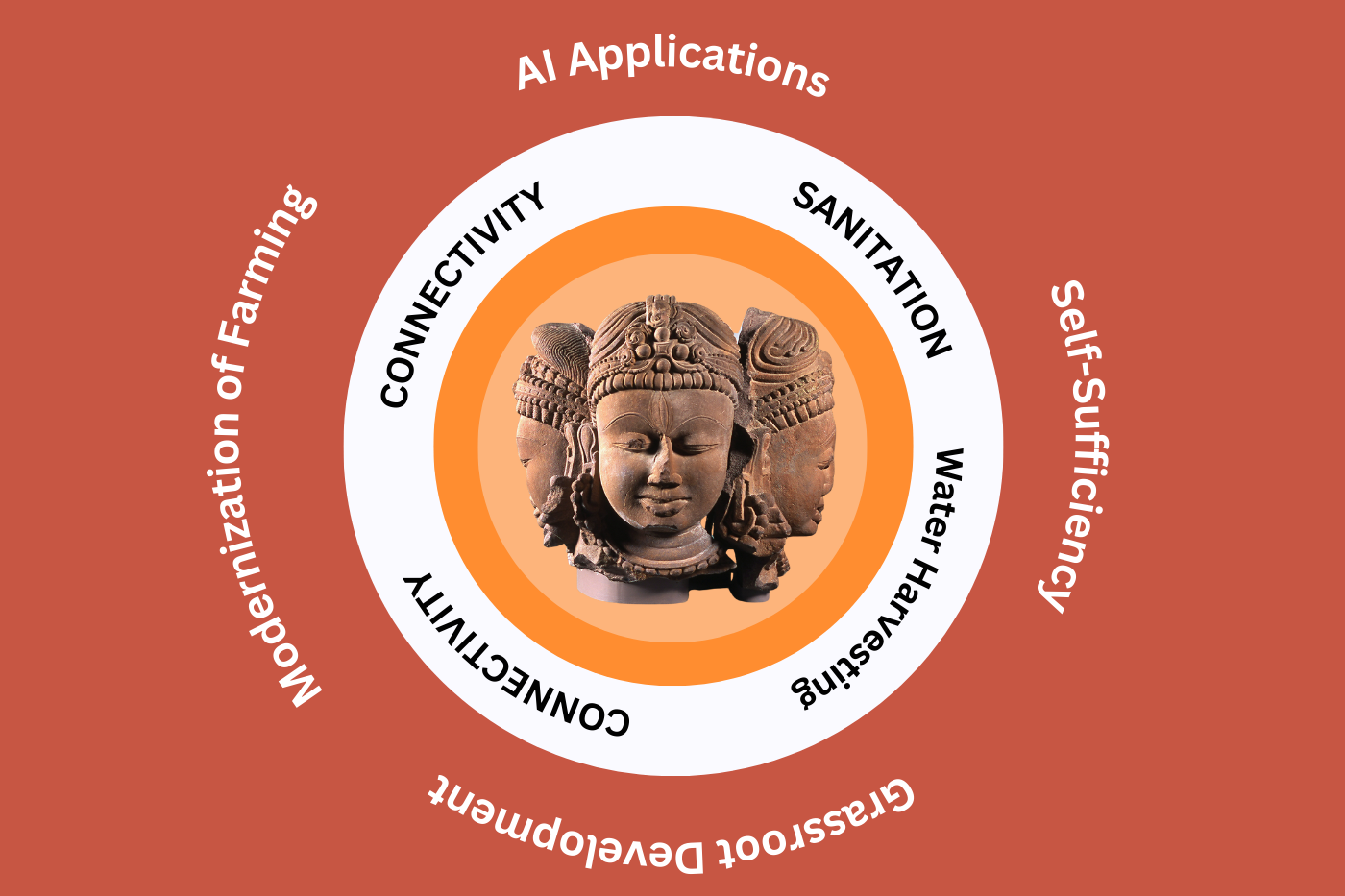
- Home
- About
- Knowledge Center
- Legislative Landscape
- Resources
- #TOGETHERFORBHARA
The role of a legislator extends far beyond the mere representation of their constituency in the corridors of power. While addressing basic needs such as healthcare, education, and infrastructure remains crucial, contemporary challenges demand a broader and more nuanced approach. Legislators must adopt a proactive stance in areas such as sanitation, water harvesting, connectivity, modernization of agriculture, and the application of artificial intelligence (AI). The overarching goal should be to transform villages and towns into self-sufficient, thriving communities with a comprehensive development strategy.
Sanitation: The Foundation of Public Health
Sanitation is a fundamental aspect of public health that requires continuous attention. Legislators should ensure the construction of adequate sanitation facilities like waste management systems, to prevent the outbreak of diseases. This can be achieved through:
By prioritizing sanitation, legislators can significantly improve the health and well-being of their constituents.
Water Harvesting: Ensuring Water Security
Water scarcity is a pressing issue in many parts of the country. Legislators have a critical role in implementing water harvesting schemes to ensure water security for their constituencies. Effective strategies include:
These initiatives not only address water scarcity but also contribute to agricultural productivity and overall quality of life.
Connectivity: Bridging the Gap
Connectivity, both physical and digital, is a cornerstone of modern development. Legislators to work towards improving infrastructure and digital access:
Enhanced connectivity enables communities to access opportunities and resources, fostering inclusive growth.
Modernization of Farming: Boosting Agricultural Productivity
Agriculture remains the backbone of the country. Legislators should focus on modernizing farming practices to increase productivity and sustainability:
By modernizing agriculture, legislators can help secure food supply, increase farmers’ incomes, and promote sustainable practices.
AI Applications: Leveraging Technology for Development
Artificial intelligence (AI) has the potential to revolutionize various sectors, including agriculture, healthcare, and governance. Legislators should advocate for and facilitate the integration of AI into these areas:
AI applications can drive innovation and efficiency, paving the way for a more advanced and equitable society.
Self-Sufficiency: Building Resilient Communities
The ultimate aim of a legislator’s efforts should be to create self-sufficient communities that can thrive independently. Key initiatives include:
By fostering self-sufficiency, legislators can empower communities to achieve long-term stability and prosperity.
Grassroot Development: From Conventional to Modern Approaches
Development must be rooted in the local context, blending traditional knowledge with modern advancements. Legislators should adopt a grassroots approach that includes:
Such an approach ensures that development is inclusive, sustainable, and tailored to the unique needs of each constituency.
Physical Presence and Engagement
A legislator’s physical presence and active engagement with their constituency are vital. Regular visits, open dialogues, and responsive governance can build trust and ensure that the needs and aspirations of the people are met. Legislators should:
Active engagement demonstrates a commitment to the constituency’s development and well-being.
Conclusion
The responsibility of a legislator to their constituency is multi-dimensional and extends far beyond basic needs. By focusing on sanitation, water harvesting, connectivity, modernization of farming, AI applications, and self-sufficiency, legislators can foster comprehensive and sustainable development. A grassroots approach that blends conventional methods with modern innovations ensures that development is inclusive and relevant. Ultimately, the physical presence and active engagement of legislators are crucial in building trust and achieving meaningful progress. By embracing these responsibilities, legislators can transform their constituencies into thriving, self-sufficient communities.